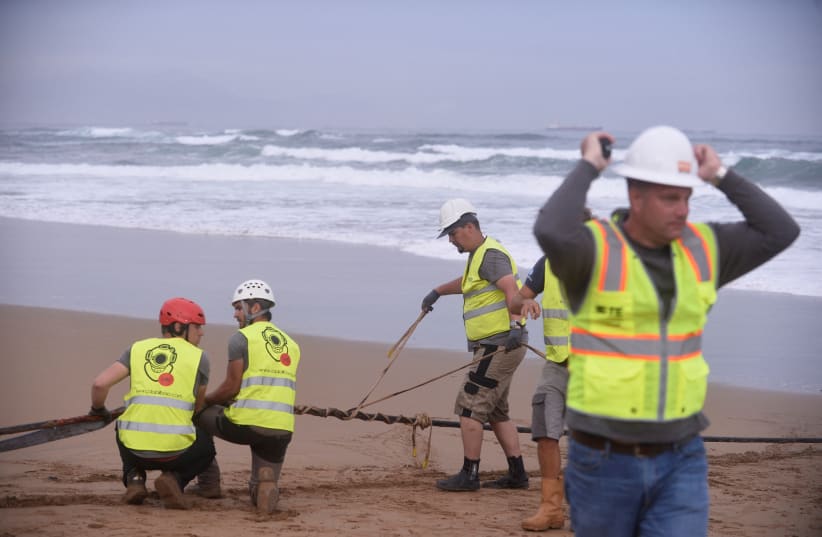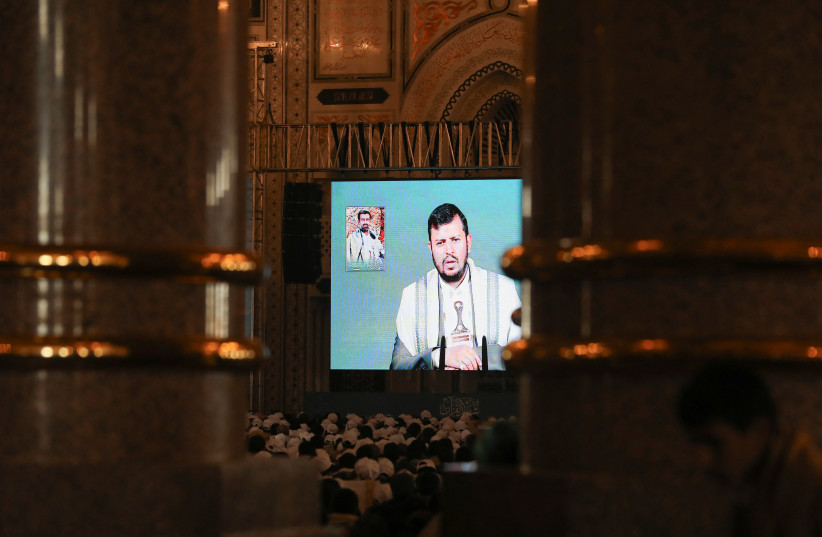The successful targeting of the four cables, which are believed to belong to the AAE-1, Seacom, EIG, and TGN systems, marks a serious disruption of communications between Europe and Asia.
JERUSALEM POST STAFF FEBRUARY 26, 2024 10:10

Workers operate on an (unrelated) lead line connected to fiber optic cable at Arrietara beach, near Bilbao, northern Spain, June 13, 2017, as Facebook Inc. and Microsoft Corp. join forces to build an underwater fiber optic cable across the Atlantic Ocean, linking Europe and the USA.(photo credit: REUTERS/VINCENT WEST/FILE PHOTO)
Four underwater communications cables between Saudi Arabia and Djibouti have been struck out of commission in recent months, presumably as a result of attacks by Yemen’s Iranian-backed Houthi rebels, according to an exclusive report in the Israeli news site Globes.
The successful targeting of the four cables, which are believed to belong to the AAE-1, Seacom, EIG, and TGN systems, marks a serious disruption of communications between Europe and Asia.
Most of the immediate harm will be absorbed by the Gulf states and India, Globes said.
The AAE-1 cable connects East Asia to Europe via Egypt, connecting China to the West through countries such as Pakistan and Qatar.
The Europe India Gateway (EIG) cable system connects southern Europe to Egypt, Saudi Arabia, Djibouti, the UAE, and India.
The Seacom cable connects Europe, Africa, and India, and is connected to South Africa.

Houthi leader Abdul-Malik al-Houthi addresses followers via a video link at the al-Shaab Mosque, formerly al-Saleh Mosque, in Sanaa, Yemen February 6, 2024. (credit: REUTERS/KHALED ABDULLAH)
Houthi attacks continue despite Western responses
Yemen’s Iranian-backed Houthi movement, which is not the internationally recognized government of the Arab country but which controls its most populous segments, has been attacking international trade for months, proclaiming solidarity with Palestinians as Israel wages war against Hamas in the Gaza Strip.
The United States, United Kingdom, and allies have begun in recent months to take offensive actions against the Houthis in response to attacks, but the missile, helicopter, and underwater drone assaults on merchant ships have continued.
Content retrieved from: https://www.jpost.com/middle-east/article-788888.